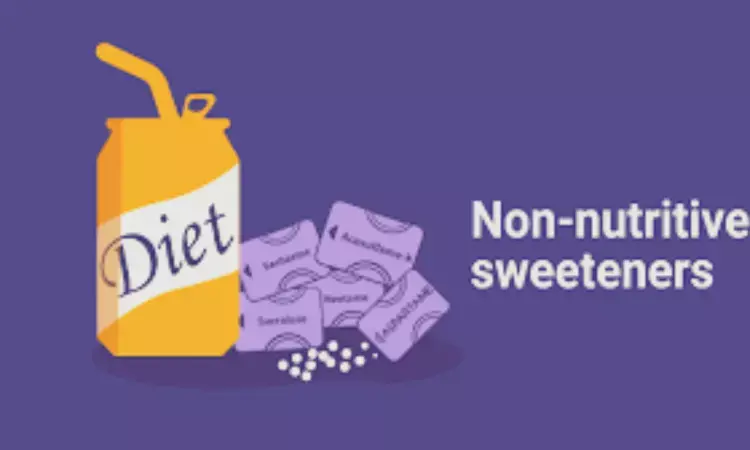- Home
- Medical news & Guidelines
- Anesthesiology
- Cardiology and CTVS
- Critical Care
- Dentistry
- Dermatology
- Diabetes and Endocrinology
- ENT
- Gastroenterology
- Medicine
- Nephrology
- Neurology
- Obstretics-Gynaecology
- Oncology
- Ophthalmology
- Orthopaedics
- Pediatrics-Neonatology
- Psychiatry
- Pulmonology
- Radiology
- Surgery
- Urology
- Laboratory Medicine
- Diet
- Nursing
- Paramedical
- Physiotherapy
- Health news
- Fact Check
- Bone Health Fact Check
- Brain Health Fact Check
- Cancer Related Fact Check
- Child Care Fact Check
- Dental and oral health fact check
- Diabetes and metabolic health fact check
- Diet and Nutrition Fact Check
- Eye and ENT Care Fact Check
- Fitness fact check
- Gut health fact check
- Heart health fact check
- Kidney health fact check
- Medical education fact check
- Men's health fact check
- Respiratory fact check
- Skin and hair care fact check
- Vaccine and Immunization fact check
- Women's health fact check
- AYUSH
- State News
- Andaman and Nicobar Islands
- Andhra Pradesh
- Arunachal Pradesh
- Assam
- Bihar
- Chandigarh
- Chattisgarh
- Dadra and Nagar Haveli
- Daman and Diu
- Delhi
- Goa
- Gujarat
- Haryana
- Himachal Pradesh
- Jammu & Kashmir
- Jharkhand
- Karnataka
- Kerala
- Ladakh
- Lakshadweep
- Madhya Pradesh
- Maharashtra
- Manipur
- Meghalaya
- Mizoram
- Nagaland
- Odisha
- Puducherry
- Punjab
- Rajasthan
- Sikkim
- Tamil Nadu
- Telangana
- Tripura
- Uttar Pradesh
- Uttrakhand
- West Bengal
- Medical Education
- Industry
Artificial sweeteners don't increase blood sugar and have no metabolic risk, study claims

Canada: Findings from a network meta-analysis published in Nutrients have shown that non-nutritive sweeteners (NNS) do not raise blood sugar and other endocrine responses. The research supports NNS beverages as an alternative replacement strategy for sugar-sweetened drinks (SSBs) in the acute postprandial setting.
The systematic review and network meta-analysis of thirty-six trials revealed that NNS beverages sweetened with single or blends of non-nutritive sweeteners have no acute endocrine and metabolic effects, similar to water.
Much attention has focused on endocrine and metabolic responses to NNS. There has been emerging concern that NNS can raise the risk of cardiometabolic disease. To investigate whether these mechanisms are operational under real-world scenarios, Roselyn Zhang, Clinical Nutrition and Risk Factor Modification Centre, St. Michael's Hospital, Toronto, ON, Canada, and colleagues conducted a network meta-analysis and systematic review of acute trials comparing the effects of NNS beverages (non-nutritive sweetened beverages) with water and SSBs in humans.
For this purpose, they searched the online databases through January 15, 2022. They included randomized, single-exposure, acute, and non-randomized clinical trials in humans, irrespective of health status. Three intake patterns were examined:
- Coupling interventions, where NNS beverages are together consumed with added energy and nutrients as carbohydrates;
- Uncoupling interventions, where NNS beverages are taken alone without added nutrients or energy; and
- Delayed coupling interventions, where NNS beverages were taken as a preload before added energy and nutrients as carbohydrates.
A 2 h iAUC (incremental area under the curve) for blood glucose concentration was determined (primary outcome). Secondary outcomes were two h iAUC for insulin, gastric inhibitory polypeptide (GIP), glucagon-like peptide 1 (GLP-1), leptin, ghrelin, peptide YY (PYY), and glucagon concentrations.
Thirty-six trials comprising 472 predominantly healthy participants were included.
The research led to the following findings:
- Trials examined several single NNS (acesulfame potassium, cyclamate, aspartame, stevia, saccharin, and sucralose) and NNS blends (acesulfame potassium + sucralose, acesulfame potassium + aspartame, acesulfame potassium + aspartame + sucralose, and acesulfame potassium + aspartame + cyclamate), along with matched water/unsweetened controls and sugar-sweetened beverages sweetened with various caloric sugars (sucrose, glucose, and fructose).
- In uncoupling interventions, NNS beverages (blends or single) did not affect postprandial glucose, insulin, GLP-1, GIP, ghrelin, PYY, and glucagon responses similar to water controls (generally, low to moderate confidence). In contrast, SSBs sweetened with caloric sugars (sucrose and glucose) increased insulin, postprandial glucose, GLP-1, and GIP responses with no differences in postprandial ghrelin and glucagon responses (generally, low to moderate confidence).
- In delayed coupling and coupling interventions, NNS beverages had no postprandial glucose and endocrine effects comparable to controls (generally, low to moderate confidence).
"We found that NNS beverages sweetened with blends or single NNS had no meaningful effects on endocrine responses and postprandial intake across three food intake patterns described above," the researchers wrote.
"These data align with recent syntheses of long-term data from prospective cohort studies and RCTs that support the use of NNS beverages as an alternative for sugar-sweetened beverages similar to water, i.e. the standard of care," they concluded.
Reference:
Zhang, R.; Noronha, J.C.; Khan, T.A.; McGlynn, N.; Back, S.; Grant, S.M.; Kendall, C.W.C.; Sievenpiper, J.L. The Effect of Non-Nutritive Sweetened Beverages on Postprandial Glycemic and Endocrine Responses: A Systematic Review and Network Meta-Analysis. Nutrients 2023, 15, 1050. https://doi.org/10.3390/nu15041050
Dr Kamal Kant Kohli-MBBS, DTCD- a chest specialist with more than 30 years of practice and a flair for writing clinical articles, Dr Kamal Kant Kohli joined Medical Dialogues as a Chief Editor of Medical News. Besides writing articles, as an editor, he proofreads and verifies all the medical content published on Medical Dialogues including those coming from journals, studies,medical conferences,guidelines etc. Email: drkohli@medicaldialogues.in. Contact no. 011-43720751


